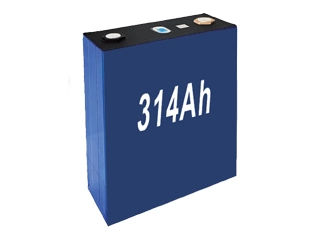Utilize BESS to Achieve Efficient Energy Management and Savings
In today's rapidly developing society, the efficient use of energy and environmental protection have become a global consensus. With technological advancements, battery storage systems, as a key technology for energy storage and management, are gradually becoming an important force driving the green transition and achieving sustainable development. In this article, battery energy storage system manufacturers will delve into how battery storage systems help us move towards a more efficient and energy-saving future from five dimensions: intelligent energy consumption, cost reduction, system resilience, resource conservation, and environmental efficiency enhancement.
Intelligent Energy Consumption: Smart Regulation by Battery Storage Systems
With their flexible charging and discharging capabilities, utility BESS has become an indispensable part of smart grids. They can intelligently adjust the balance of power supply and demand based on changes in grid load and real-time output of renewable energies (such as solar and wind energy). During peak electricity usage periods, storage systems release stored energy to alleviate grid pressure; during off-peak periods or when renewable energy is in surplus, they automatically charge, achieving "peak shaving and valley filling." This intelligent regulation not only improves energy utilization efficiency but also promotes the intelligent and refined management of energy consumption.
Cost Reduction: Economic Benefits of Battery Storage Systems Showcased
For businesses and residential users, the introduction of utility BESS brings significant cost reduction effects. For companies that rely on production during high electricity price periods, storage systems can charge during low-price periods and discharge during peak times, directly lowering electricity costs. Additionally, storage systems can reduce reliance on traditional power generation equipment, lowering standby capacity investments. In the long run, this is crucial for enhancing corporate competitiveness and the quality of life for residents. Moreover, with advancements in storage technology and continuous cost reductions, their economic benefits will become even more prominent.
System Resilience: Enhancing Energy Supply Stability with Battery Storage Systems
In the face of uncertainties such as natural disasters and emergencies, the stability of energy supply becomes particularly important. As an emergency backup power source, battery storage systems can respond quickly during grid failures or blackouts, providing continuous power support to critical loads and ensuring the normal operation of essential facilities. This instant response capability greatly enhances the resilience of the energy system, ensuring the stable operation of the socio-economic framework and the basic needs of people's lives.
Resource Conservation: Promoting Energy Structure Optimization with Battery Storage Systems
As global energy demands continue to rise, the depletion of traditional fossil fuels is becoming increasingly severe. Stationary storage battery systems, by promoting the large-scale integration and efficient utilization of renewable energy, effectively alleviate the contradiction between energy supply and demand, driving the optimization and upgrading of the energy structure. Through the application of storage systems, we can make more comprehensive use of wind, solar, and other clean, renewable energy resources, reducing reliance on limited resources such as coal and oil, thus achieving energy savings and sustainable development.
Improving Environmental Efficiency: Battery Storage Systems Facilitate Green and Low-Carbon Transition
In the context of addressing global climate change and achieving carbon neutrality, BESS wholesale, with their unique advantages, have become an important force in promoting green and low-carbon transitions. By reducing the use of fossil fuels, storage systems significantly cut down on greenhouse gas emissions and other pollutants, improving air quality and protecting the ecological environment. Moreover, the widespread application of storage systems promotes the green and low-carbon development of the energy industry, making a significant contribution to achieving global environmental goals.
In summary, with their multiple advantages in intelligent regulation, cost reduction, system resilience, resource conservation, and environmental efficiency improvement, battery storage systems are gradually becoming a key technology for efficient energy management and energy saving. With continuous technological advancements and expanding application scenarios, we have every reason to believe that battery storage systems will play an increasingly important role in the future energy sector, leading us towards a greener and more sustainable future.





 EN
EN
 fr
fr  de
de  es
es 


